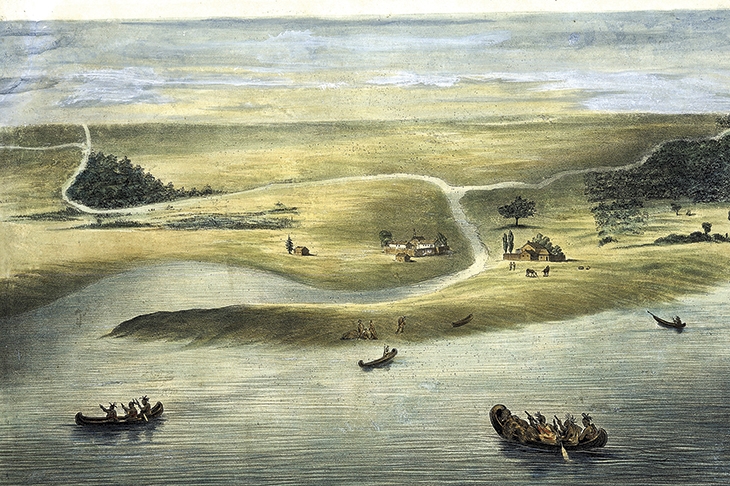At the end of the last century, Simon Winchester bought 123 acres of wooded mountainside in the hamlet of Wassaic, the village of Armenia, the town of Dover, the country of Dutchess, the state of New York, the country of America. His land had originally been inhabited by the Mohicans, who grew corn and squash and beans until they were expelled by the Dutch. It was then owned, in the titular sense, by Charles II, James II, Mary II, William III and Georges I, II and III, and had passed through the hands of a series of farmers, charcoal-makers and Sicilian immigrants before Winchester became its custodian.
Despite having written a great deal about land in books such as The Map that Changed the World, A Crack in the Edge of the World and Outposts, this was the first time that Winchester had ever owned any. He would now, he realised, be entitled to put up signs saying ‘Trespassers will be prosecuted’. A native Englishman with US citizenship, he has spent his time as a landowner reflecting on the injustices of private ownership, and on the irony that his English forebears, dispossessed of their own land by the enclosures of the 17th and 18th centuries, also relocated to America where they, in turn, dispossessed the indigenous people of their land. What is it about land, Winchester asks, ‘an entity which, in truth, cannot possibly be owned, by anyone, ever’, that generates such greed and passion? What does it mean to ‘love’ the land, to lose your land, to respect the land, to ‘rewild’ the land, to parcel land up and put hedges around it, or to have a community buy-out of land, as recently happened to the 4,500 acres of the Scottish island of Ulva?
Australia’s Gina Rinehart is the world’s largest landowner, with 29 million acres to play with
These questions form the heart of this vast and idiosyncratic survey, which is part encyclopaedia, part manifesto for fairer distribution, part elegy for a drowning planet and part an exploration of universal lust.







Comments
Join the debate for just £1 a month
Be part of the conversation with other Spectator readers by getting your first three months for £3.
UNLOCK ACCESS Just £1 a monthAlready a subscriber? Log in